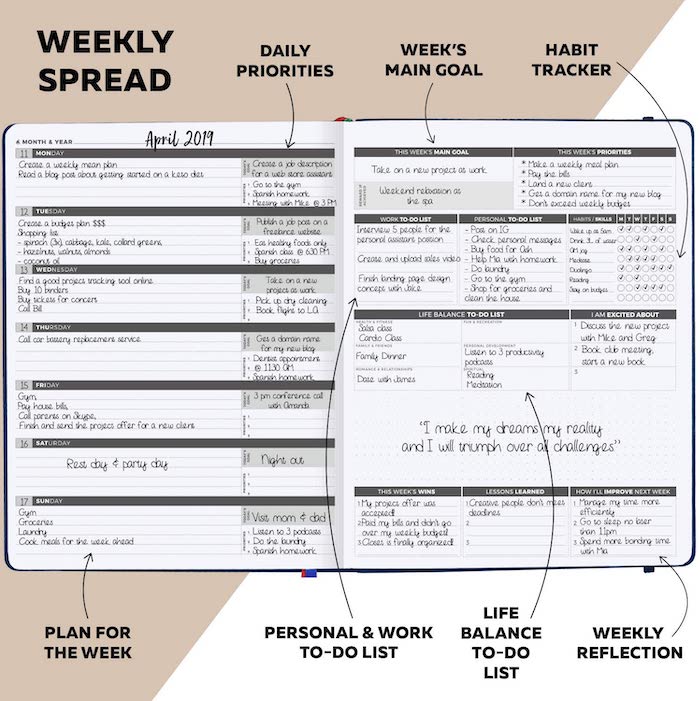Whether you work independently or on a team, there’s a good chance you’re feeling the effects of YouTube burnout — especially after the year we’ve had.
Josh Zimmerman knows this feeling all too well. In 2014, he joined YouTube Nation and fell in love with YouTube.

He went on to launch his own YouTube management company only to start feeling the effects of burnout a few years later. This was around 2017, when people were just starting to talk about this idea of “burnout.”
“I noticed something really interesting, which was that everyone was talking about the problem, but nobody was doing anything about it,” he says. “I decided at that moment I was going to be the solution — I was going to do something about it.”
And so he became the first-ever certified life coach dedicated to helping creators, and he’s now dubbed the Creator Coach® — or, as I like to call him, the Clark Kent of YouTube (and no it's not just because of the glasses).
I caught up with Josh, and we talked about the unique problems YouTube creators face, strategies to combat creator burnout and some of the most counterproductive habits you should avoid. (Spoiler: You’re probably doing at least one of them right now.)
Resources Mentioned In This Episode
- Work with Josh to avoid Creator Burnout (or recover from it)
- Follow Josh On Twitter
- Check out the epic medium article Josh references - Your surge capacity is depleted and it's why you feel awful
- Check out the awesome YouTube Nation
The YouTube easter egg from the start of today's episode is this little gem.
The Pro Channel Manager Academy is our incredible community full of incredible video courses and some of YouTube greatest minds to help you grow the YouTube channels you are working on.
A HUMUNGOUS thank you to our incredible sponsor and my favourite YouTube tool vidIQ. I use it on every single video I upload and has helped me generate BILLIONS of YouTube views. Get a free trial of one of their incredible paid plans by clicking here.
The Unique Challenges YouTube Creators Face
Being a YouTube creator comes with a unique set of challenges many other professionals won’t encounter. Josh is well-versed in this department. He spends his days working with clients to help them get from point A to point B — pushing them to power through obstacles getting in their way.
It’s no secret creator burnout is a huge issue in our industry, but there are also issues with loneliness and trust.
“Everyone I work with says, ‘I'm the only one that has this problem,’ and I just sit there and wait for it, and it’s, ‘I'm lonely,’” Josh explains. “I hear that from every single client, and everyone thinks they are the only ones who feel that way because this is such an isolating job.”
Think about it. You probably sit behind a computer or in front of a camera for the majority of your day. Sure, you’re collecting views and comments from fans, but this actually starts to pose another problem: trust issues.
When you start hitting it big on YouTube, you’re really just creating these one-way relationships. Everyone thinks they know you and wants to become your friend, and it’s hard to know who you can really trust. Not only that, but a lot of creators feel as though they can’t be their true selves “because that's not the persona they've put out on YouTube,” Josh says.
And, chances are, you don’t really have anyone you can trust to give you honest feedback and ask you the hard questions that’ll help you move forward. The result?
“The symptoms are stress, burnout, anxiety, depression, not feeling inspired to create content, stopping making content — to just watching the numbers drop and giving up,” Josh says. “It also can go the other way, where people start pumping out more and more and more content until they run themselves into the ground.”
Even my good pal and Pro Channel Manager Community member Thomas Frank, who is as close to superhuman as is possible was not immune to burnout;
5 Simple Strategies You Can Use To Avoid YouTuber Burnout
During these times especially, we’re feeling the effects of burnout. Part of it has to do with something called “surge capacity,” the mental and physical systems humans draw on for short-term survival. Think: The fight-or-flight response.
When you operate at these speeds for too long, it’s impossible to maintain, and your surge capacity becomes depleted, resulting in straight-up exhaustion and burnout.
Josh offers up some simple strategies you can start using today to avoid this.
1) Create A Morning Routine
When you work for yourself — or if you’re working from home due to the pandemic — it’s easy to slip into the morning “routine” of simply rolling out of bed and turning on your computer. But that’s not a good enough routine. We need stability and consistency, especially in these uncertain times.
“We have to create a morning routine that gives you the stability to stand on and know that's what you're going to do every single day,” Josh says. “If you’re able to do this, you’ll immediately see a change in how you feel and how much you can accomplish in the day.”

If you need some morning routine inspiration, read “The Miracle Morning” by Hal Elrod. It changed my whole perception of morning routines.
2) Establish Rituals
Now, this is sort of folded into the idea of having a morning routine, but it’s important to establish a sense of normalcy throughout your day. Rituals can include exercising, eating meals, talking to a friend — doing all of these things at certain times throughout the day.
And remember: These should be things that make you feel good and boost your mood.
Establishing rituals can be difficult at first, but if you need some accountability to keep you on track, try enlisting a friend to participate in this with you. Or of course we have a whole community of fellow YouTube pros to talk over at Pro Channel Manager.
3) Toss The To-Do List
Well, maybe don’t throw it away entirely, but think about this: When’s the last time you’ve actually completed an entire to-do list?
For a lot of people, myself included, the answer is never because we tend to keep adding tasks to the list, and it becomes never-ending.
“The reason why the to-do list is dangerous is because you always add things,” Josh says. “So when you cross something off, it doesn't feel significant because the list just keeps growing.”
Instead, he suggests writing down three to four things you want to accomplish each day. That’s it. This allows you to actually cross items off your list and feel a sense of completion at the end of the day, “reinforcing positive behavior and giving yourself the credit that you completed something,” Josh says.
Sure, you can keep a running to-do list. That’s OK. Just don’t make it part of your everyday workload.
I've really changed my way of running "to-do's and have switched over to using the awesome Clever Fox Planner Pro, which helps you think of longer and shorter term goals as well as gratitude journaling and other personal development rituals.
4) Select An SDA Each Morning
An SDA refers to a single daily action, and choosing one SDA you want to accomplish can help you conquer procrastination.
Here’s what Josh suggests: Write down a list of, say, 10 things you’ve been putting off. If you’ve really been procrastinating, bump this list up to 20 things.
Now, assign one item on the list for each day, over the next 10 or 20 days. In that short amount of time, you’ll finally be able to get rid of that nagging to-do list, and “that's going to help build confidence, structure and your ability to see that you're actually moving forward when we all feel stuck,” Josh says.
5) Set Work-Life Boundaries
This one is difficult, especially with many of us working from home, but Josh challenges everyone to set up one designated area in your home or apartment for working purposes only. Everything else is your living space. Setting these physical boundaries is essential in preventing burnout.
It’s also important to set time boundaries and stick to a schedule. Say you work 7 a.m. to 3 p.m. Once 3 p.m. rolls around, you’re done for the day. Don’t go back into your work space until the next morning.
“The more you work, the more you're running yourself into the ground, and you're actually not accomplishing as much as possible,” Josh says.
For me personally this one one of the biggest things that helped me when I first got started working from home. I emptied out the kids old playroom (sorry kids!) and tuned it into a home office. That way everyone knows when the door is shut "Daddy's working" and when I finish at the end of the day and shut the door behind me I know I've created some mental separation too. Here's an early proud shot of Pro Channel Manager HQ...
Don’t Hinder Your Progress With These Counterproductive Habits
OK, so now you’re armed with the tools and strategies you need to prevent burnout. But there are some counterproductive habits Josh warns us about. Don’t let these set you back.
 Stop Comparing Yourself to Others
Stop Comparing Yourself to Others
When you work as a creator, especially on social media platforms, it’s easy to start comparing yourself to others.
You might find yourself asking why you don’t get more views, more subscribers or more positive comments because so-and-so does.
“When we beat ourselves up and we start to feel bad because we're scrolling through and looking at how great other people's lives are, just remember: It's curated,” Josh says.
Appreciate what you have and the impact you’re making. Oh, and a little perspective can go a long way, too.
Let’s say you have 1 million subscribers, but you see your numbers start declining. Rather than getting down on yourself, put it in perspective. Madison Square Garden, one of the most famous and sought after venues in the world, holds 20,789 people. How many Madison Square Gardens are you filling with your monthly views?

 Stop Consuming So Much News
Stop Consuming So Much News
The thing about news is, it’s always pretty negative, especially after this year we’ve had, and if you let it, it can consume you and your mental capacity.
Josh encourages creators to limit their news intake. Of course, keeping tabs on the state of the world is important, but it’s not necessary to refresh your Twitter feed every 10 minutes. Chances are, it’ll just weigh you down and strip you of your creative energy.
 Stop Isolating Yourself
Stop Isolating Yourself
We talked about how being a YouTube creator can be a pretty lonely job. For that reason, it’s essential you get as much (safe!) human interaction as possible.
If you’re experiencing Zoom fatigue, find other, more creative ways to keep in touch with people. Pick up the phone, join online groups (there’s always the Pro Channel Manager Community - did I mention that already? 
Although your job depends on you being behind a computer, you’re not required to be there 24/7, physically OR MENTALLY, so it’s important to step away and take time for yourself — otherwise you risk burnout.
Never miss a single episode of the podcast and be the first to hear about our new courses and community updates by signing up for updates

